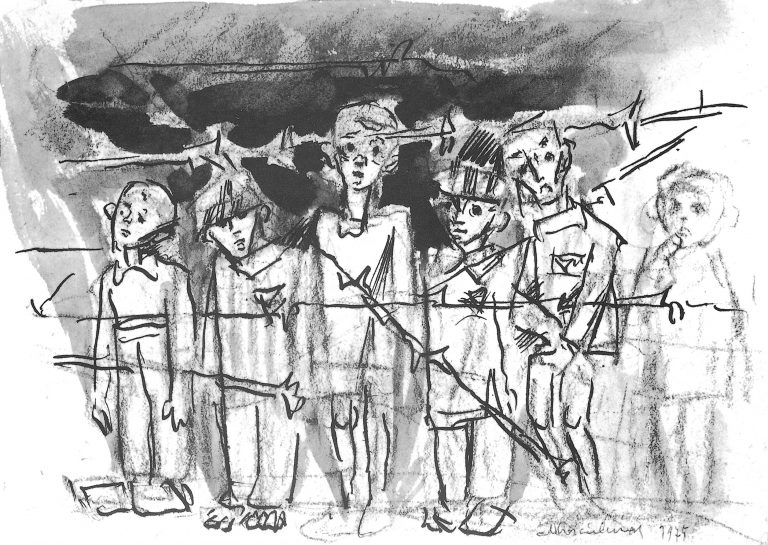
Wariyam son of Bachu Badshah too followed the footprints of ancestors and during the resistance war was deported to India in 1915.
The names of Wariyam son of Bachu Badshah and Jiando Wasan nephew of Piru Vizier appeared several times in the correspondence between the Sindh officials and Bombay Presidency. Bachal Alias Bachu Badshah had named his son after his father Wariyam, a warrior who also sacrificed life while fighting the British. His grandson Wariyam too followed the footprints of ancestors and during the resistance war was deported to India in 1915. Similarly, Jiando Wasan was deported two years earlier in 1913.
In 1923, when the Bombay Presidency desired to repatriate some Hurs to Sindh including Wariyam, R. E. Gibson, the then Commissioner of Sindh referring to a letter dated February 07, 1923 from Inspector General of Prisons, Bombay about repatriation of Hurs from Visapur Settlement, suggested vide a letter dated April 12, 1923 that there is no objection to the repatriation of Hurs to Sindh. He, however, suggested that all the Hurs except Wariyam son of Bachu and Mubarak son of Badal should be sent to Sanghar Settlement while these two should report to District Magistrate Nawabshah.
Wariyam was married and by that time he had a daughter. He and his family were to be repatriated. Among other Hurs Mohammad son of Gamu had a wife, two sons and two daughters, Kamil son of Mataro had a wife and Lakhmir son of Bahram had a wife and a daughter while Haroon son of Bahram, Nabi Shah son of Shah Mardan, Dadlo son of Sajan and Durani son of Sumar were single.
Jiando Wasan son of Sajan, who served as schoolmaster at Visapur camp, had applied for repatriation to Sindh on the grounds that his daughter had become of marriageable age and that he was unable to support his family, which consisted of wife, two sons and two daughters out of the pay of Rs.15/- that he got as schoolmaster and Rs.4/-, which are paid to him as doles.
His application was sent to Sindh officials for comments on which the then District Magistrate Nawabshah J. M. Sladen vide letter dated June 23, 1923 informed the Commissioner of sindh that Jiando had satisfactory character since his admission in the Visapur Settlement. “The District Superintendent of Police Nawabshah has no objection to his repatriation to Sindh. Moreover, in view of the fact that Wariyam son of Bachu Badshah has recently been repatriated to Sindh, there should be no objection to the repatriation of Jiando Wasan who is only a nephew of Piru Vizier, especially since he bears a good character at Visapur and he will not be released outright here but kept in Jalalani Agricultural Settlement,” he stated.
The repatriation of Jiando Wasan was in fact recommended by Settlement Officer, Visapur in 1922, as he was reported to be well behaved, but a letter from District Magistrate Nawabshah sent to Inspector General of Prisons, Bombay through Judicial Department of Commissioner of Sindh’s office on July 19, 1923 shows that District Magistrate Tharparkar had objected Jiando Wasan’s repatriation vide letter dated December 18, 1922. On same date the Commissioner of Sindh vide a letter No: 3140-H communicated to Home Department of Bombay the objection and endorsing it. The Assistant Commissioner in Sindh, on behalf of Commissioner, vide letter No:729-H dated May 26, 1923 again informed the Bombay Presidency that Commissioner of Sindh had not recommended the repatriation of Jiando Wasan to Sindh as the District Magistrate Tharparkar was opposed to it even in October 1922.
(Continues)
Click here for Part-I
Click here for Part-II
Click here for Part III
______________________
Excerpts from the prize-winning research-based book ‘Hur – The Freedom Fighter’ authored by Nasir Aijaz (Published by Sindh Culture Department in August 2015)